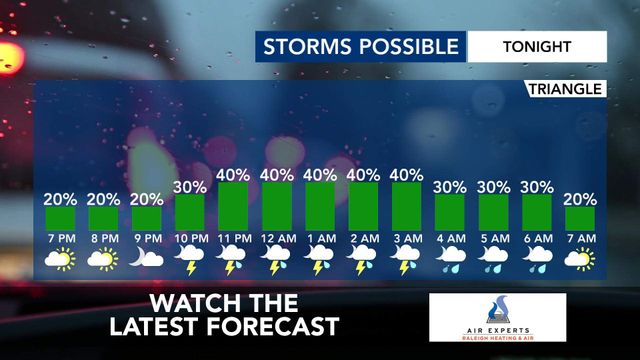Apex woman urges caution after ultrasound photo stolen on Instagram
Imagine your face or your baby's face stolen and used on social media by a complete stranger. This happens a lot, but for one woman, the creep factor involved her unborn daughter.
Erika D'Amato said she is now rethinking her posts on social media after an odd and disturbing find on Instagram.
An Instagram follower in Michigan took D'Amato's 4D ultrasound photo and posted it as her own.
"When I clicked on her account, I saw my daughter's face and the name Arianna posted across the top of it,” D’Amato said. “I was just like, 'What is going on?'"
"Literally, everything went through my head. Like, is she going to do something crazy and hurt another child because she's going to act like she had a baby? I responded on there, like what is wrong with you?"
The woman eventually took the photo down, but this is not the first time this has happened.
A child near Charlotte was involved in a similar case.
Natalie Weaver said a stranger took a photo of her daughter, Sophie, who has a disability, and used it on Twitter to promote abortion. The Weavers eventually got Twitter to remove the post.
"When I saw that posted, my heart dropped. It was incredibly painful," Weaver said.
If you post a picture online, at a minimum anyone can screengrab it. You are able to adjust privacy settings on your social media accounts - which can allow access for friends only.
In policies, most social media sites say if you notice a stolen photo, you should first reach out to that person and ask that it be removed. If that doesn’t work, then reach out to the website in question.
Someone on Facebook snagged a profile picture of WRAL Managing Editor Martha Jennings and posted it as their own. Jennings messaged the woman to remove it, and reported it to Facebook. Nothing happened, but the account is no longer active.
Some sites are now taking steps to help users track their posts. Facebook is testing a program they hope will prevent profile photos from being stolen and misused. Instagram has also started a new feature that alerts users if someone takes a screen shot.
You can also upload a photo into a reverse image search website to see if it shows up in other places.
D'Amato said she now keeps all of her profiles private and urges others to do the same.











